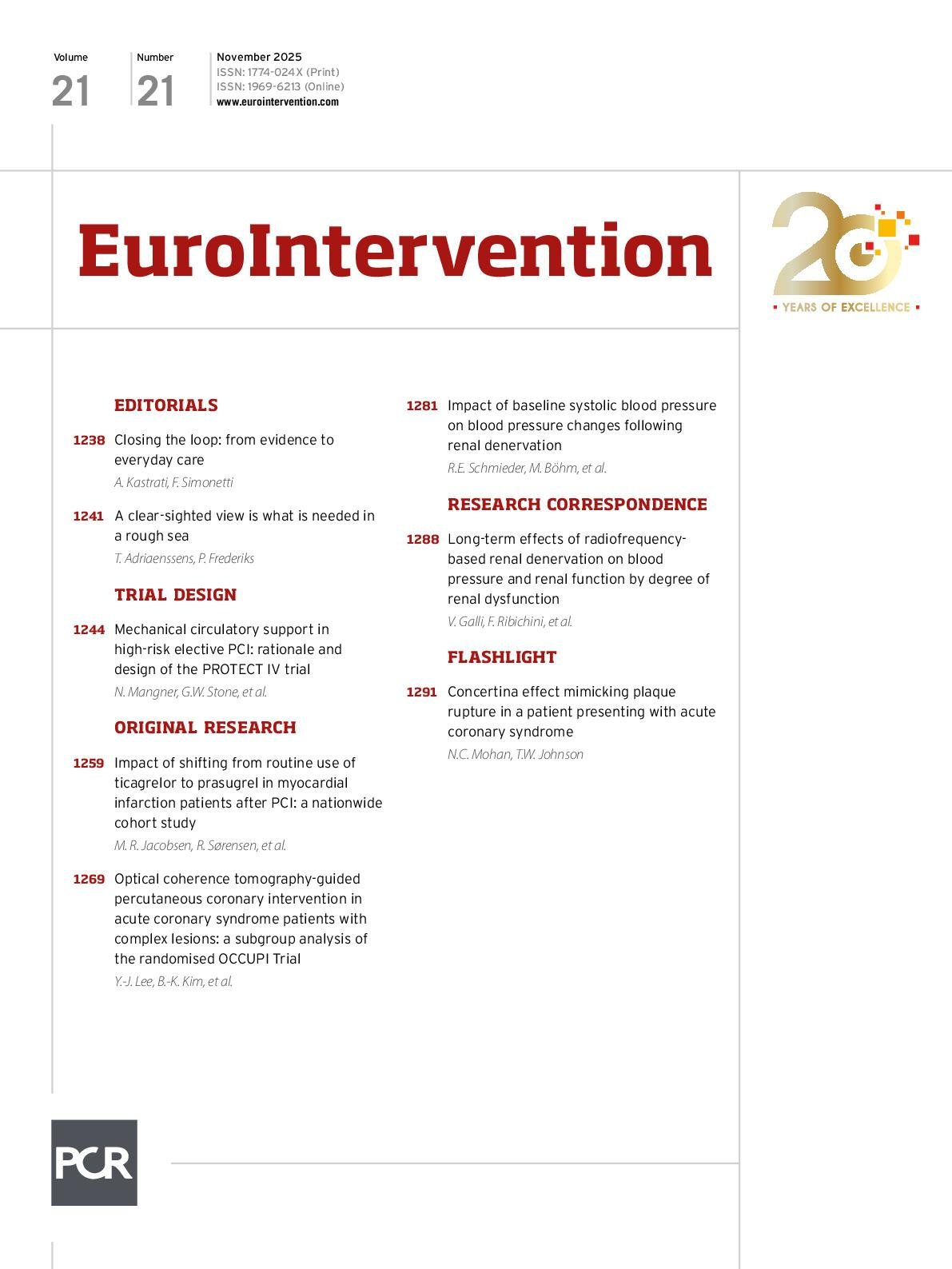In this issue of EuroIntervention, Jacobsen and her colleagues1 report on the results of an interesting study that establishes a benchmark for validating evidence from randomised controlled trials (RCTs) in real-world practice. They make a highly original contribution to the unprecedented debate surrounding the publication of the Intracoronary Stenting and Antithrombotic Regimen: Rapid Early Action for Coronary Treatment (ISAR-REACT 5) trial2 by evaluating whether the results of this trial can be replicated in patients with acute myocardial infarction (AMI) in everyday practice. The present study is based on a nationwide registry in Denmark that included patients with AMI who were treated with percutaneous coronary intervention (PCI) between 1 January 2019 and 31 December 2022. This is a relatively short period of time for important advances in drug and device therapies to have occurred. During this period, the Danish Society of Cardiology’s guidelines recommended prasugrel over ticagrelor for patients with acute coronary syndromes (ACS) undergoing PCI, in line with the analogous 2020 and 2023 guidelines of the European Society of Cardiology34. This marked a shift in dominance...
Sign up for free!
Join us for free and access thousands of articles from EuroIntervention, as well as presentations, videos, cases from PCRonline.com

